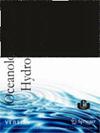富营养化海岸环境中活性硅酸盐通量的船上再悬浮控制机制
IF 1
4区 环境科学与生态学
Q4 OCEANOGRAPHY
引用次数: 0
摘要
本研究旨在利用机载孵化技术区分生物介导的和生物源的CO3 -2降水或陆源的CO3 -2输入,研究再悬浮在沿海环境中的影响,并增加我们对再悬浮事件中硅酸盐释放与其他生物地球化学变量之间预测关系的理解。研究了不同季节暗硅酸盐通量与BSi、CO3 -2、OrgC、Mn(锰)的关系。硅藻骨架上的CaCO3涂层控制硅藻通量,因为硅藻骨架在方解石沉淀中充当结晶核,受到生物影响。BSi的通量减少可能是由于较大硅藻种类的表面积减少。二氧化硅通量与CO3 -2之间观察到的负线性关系表明,RSi通量受到生物介导的碳酸盐增加的限制。斜率相同但截距不同的线性关系揭示了硅藻尺寸变化对硅通量的影响。较小的硅藻有更多的单位体积表面积,这意味着硅通量增加。另一方面,在相同有机碳值的站点上看到不同的CO3 -2值,使线性关系的置信区间(CI)增加了95%。在具有相同碳酸盐值的站点中存在不同的硅通量值,可以用不同的有机碳值和硅藻群大小不同来解释。硅藻骨架上的CaCO3涂层控制硅藻通量,因为硅藻骨架在方解石沉淀中充当结晶核,受到生物影响。碳酸盐沉淀是控制活性硅通量的主要机制。在相同碳酸盐值的台站观测到不同的硅通量值也可以用有机碳来解释。本文章由计算机程序翻译,如有差异,请以英文原文为准。
Control mechanisms on the reactive silicate fluxes by using on board resuspension experiments in the eutrophicated coastal environment
This study aims to differentiate bio-mediated and biogenic CO3 -2 precipitation or terrestrial CO3 -2 input using onboard incubation techniques, to investigate the effects of resuspension in the coastal environment and to increase our understanding of predicted relationships between silicate releases and other biogeochemical variables in resuspension events. Relationships between dark silicate flux and BSi, CO3 -2, OrgC, Mn (manganese) according to the seasons were examined. The silica flux is controlled by the CaCO3 coating on the diatom skeletons due to the fact that diatom skeletons act as crystallization nuclei in the calcite precipitation that is biologically affected. The reduction in flux with BSi may be due to the reduction in the surface areas of larger diatom species. The negative linear relationships observed between silica fluxes and CO3 -2 is indicative of RSi fluxes constrained by bio-mediated carbonate increase. Linear relationships which are the same in their slopes but differ in their intercepts, reveal the effect of the change in diatom size on silica flux. Smaller diatoms have more surface area per unit volume, meaning an increased silica flux. On the other hand, seeing different CO3 -2 values at stations with the same orgC value have increased the confidence interval (CI) 95% in the linear relationship. The presence of different silica flux values in stations with the same carbonate value may be explained both by different orgC values and by diatoms containing different group sizes. The silica flux is controlled by the CaCO3 coating on the diatom skeletons due to the fact that diatom skeletons act as crystallization nuclei in the calcite precipitation that is biologically affected. The main mechanism controlling the reactive silica flux is carbonate precipitation. The observation of different silica flux values in stations with the same carbonate values can also be explained by OrgC.
求助全文
通过发布文献求助,成功后即可免费获取论文全文。
去求助
来源期刊
CiteScore
1.70
自引率
11.10%
发文量
8
审稿时长
>12 weeks
期刊介绍:
Oceanological and Hydrobiological Studies is an international journal published by the Institute of Oceanography, University of Gdańsk in Poland. The journal has 4 issues per year and contains papers on all aspects of the marine environment and hydrobiology. All manuscripts are reviewed by editors and independent experts. Based on the referees'' recommendations, the Editor will make a decision on whether to accept a contribution. All articles are published in English. The journal is open to all matters concerning the water environment, thus providing the readers with a wide spectrum of topics in every issue.

 求助内容:
求助内容: 应助结果提醒方式:
应助结果提醒方式:


